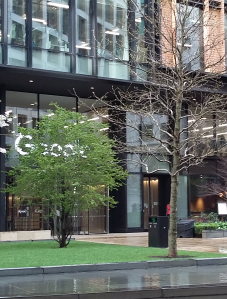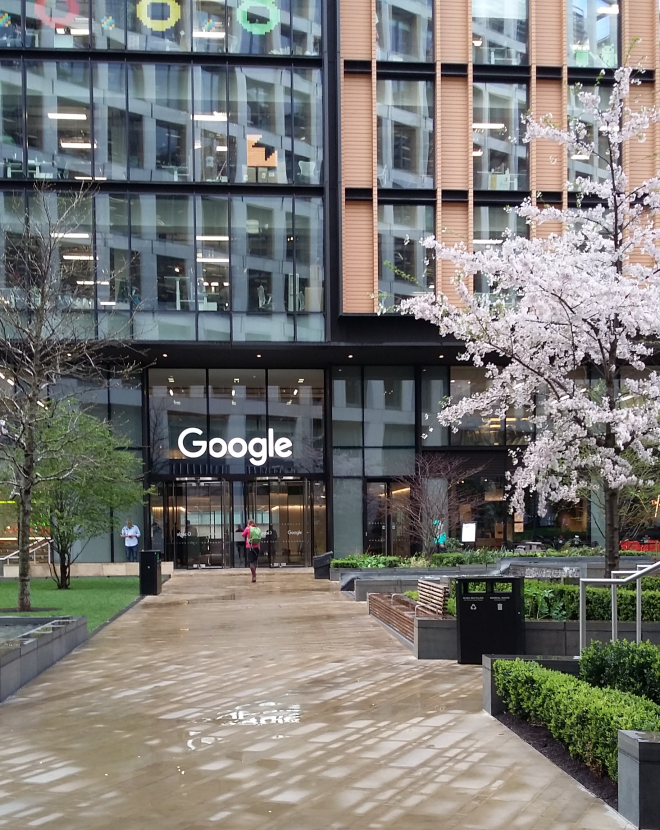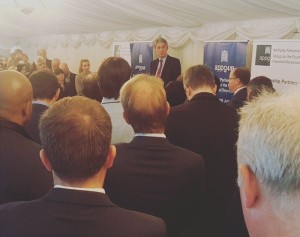This week I’m taking down Google and annoying Mac users (not intending to annoy but I reckon it will happen). Here’s Google looking shy.

It’s a longer post as so much fighting over the Internet happened in March. First up, on March 1st the government published the latest UK digital strategy. It got little coverage because, well, Trump and Brexit. Was it any good? Not really. The shadow minister for digital everything is Louise Haigh, who hasn’t had the job long, but long enough to take an informed view. She called it recycled and meagre. There are lists of marvellous things that have already happened and the Govt would like to take credit for. There’s hopeful, wishy-washy stuff about things the government would like to happen but isn’t taking responsibility for. So they are giving consumers the right to request fast broadband. That’s not quite the same as saying it will happen, and that there’s an actual plan. Almost one in five (spun in the strategy as just over 80% who DO as that sounds so much better) of SMEs don’t have access to fast broadband. Meanwhile, BT’s Openreach has just been fined £42 million for commercial malpractice over fast broadband provision. I heard BT defending their position at a conference fifteen years ago, on the grounds that it was unfair for them to be forced to sort out broadband access throughout the country when their competitors might benefit. They were handed the grid’s local loops and a massive advantage when they were privatised and have been getting away with it for a very long time. This week, they committed to 95% cover but that leaves 5% who can’t all be volunteers on reality TV shows and happy to live a slow or off-grid life. I know a couple of people who are happily like that some of the time, but then again, it also drives them crazy.
Then the ‘strategy’ has more hopeful stuff about the gender skills gap, and on digital skills training, already outsourced to a bunch of organisations including banks (those Barclays ads) . Last year £35 million went to various outsourced providers, or in govt spending terms around half a peanut. The strategy pats itself on the back for all the great work done in libraries by staff along with volunteers to provide Internet access and digital skills training. Meanwhile over in another universe, funding is getting cut and libraries are closing. One in 10 adults, according to the strategy, has never used the Internet. (The Oxford Internet Institute has been bringing out regular reports on the digital access gap for years.) I don’t think the ministers responsible for this strategy have a clue. I ran classes for Internet beginners in Peckham Library for a couple of years starting in 2000 and I’m sure it would cost more than a fiver each person to sort out problems of access, confidence, understanding and skills.

On March 10 the row involving Google was already simmering and at an advertising industry event, Martin Sorrell came out with this attack which got loud cheers from the audience:
The fundamental issue is that you [Google] have to take responsibility for this as a media company. You are not a passive digital engineer tightening the digital pipes with your digital spanner and not responsible for the flow through of content of those pipes, you are responsible for it. You have to step up and take responsibility. You have the resources, your margins are enormous, you have control of the algorithms, you don’t explain to people how those algorithms work. You have to change.
Google – who now own YouTube, were being criticised for letting racists, terrorist organisations, and hate-mongers of all stripes make money out of adverts on YouTube as well as making money themselves from the same ads. They were pretty slow to react. MPs on the Home Affairs Select Committee had another go on March 14, when David Winnick pretty much called Peter Barron (Google), Simon Winnick (Facebook) and Nick Pickles (Twitter) pimps. He said that they were engaged in little more than “commercial prostitution” and that he would be ashamed to earn his money in the way they did. Here’s Google’s lovely new London HQ again, in the lovely new Pancras Square with its lovely corporate fountains and trees. It’s basically a large four-cornered smoker’s corner with a few coffee, sushi and sandwich joints.

It’s taken Google a long time to admit that it’s an advertising company, one of the world’s largest. It might not even really admit that yet with its continuing claims – see the YouTube policy info – that it is up to users to report breaches. Facebook hasn’t admitted it either. Like CocaCola only wants to bring the world together rather than sell sugary drinks, Facebook wants to build global community. Why would another vast advertising company want to do that, exactly?
But there’s no question, the issues of fake news, politicians ticking them off and the not at all fake fact that companies are cancelling adverts are getting them a little rattled. Zuckerberg gave us a fine example of a geek’s worldview with his new manifesto. It was sweet, almost. It reminded me of a symposium I went to in Seattle, Shaping the network society, in 2002. I realised there’s a worldview (some) geeks apparently develop. At a certain point, having been totally immersed along with people like themselves in Internet technology, they start to notice other kinds of problems – social, economic, political, environmental. They then offer their worldwide technology-based solutions, as they’ve never noticed there are already other people studying and trying to deal with all those world problems. They’re totally unaware of their own ignorance. In all seriousness, they propose that their next task is to build a global community and sort all that hard stuff out. Good luck, Mark. Are you going to drop all the adverts now that you’re saving the world and not an advertising company any more?
Tim Berners-Lee’s take on alarms about fake news, bots, algorithms and data was more grounded although the Guardian gave it the stupid sub-heading ‘I invented the Internet’. He didn’t quite write that. He did write ‘I may have invented the web, but all of you have helped to create what it is today.’ He argues for control of personal data, pushing back against misinformation, transparency and more understanding in relation to political advertising. The Web Foundation started by Berners-Lee reckons there is currently a worldwide 12% gender gap in access to the Internet. I started my PhD research back in 1999 provoked by the statistic that there was, at the time, a 9% gender gap in the UK, for no good reason.
The UK strategy is supposed to address the gender gap. Maybe the brand new All Party Parliamentary Group on the Fourth Industrial Revolution, launched last week, will help sort that out too. They’re keen on improving digital everything. Here they are.

Time for some good news. The Indian state of Kerala has decreed that Internet access is a basic human right so all citizens should get free wifi access. And reading Harry Potter may help defeat Trump. You don’t even need a wand. Seriously, a study last year showed that reading Harry Potter lowers Americans’ opinions of Donald Trump. It sounds unlikely but Diana Mutz is a real expert in political science and reported an evidence base of 1100 odd respondents. I liked this next bit as I’d wondered if she’d thought about the religious Right banning Potter books, but she’s properly bossed those variables already (my bold):
… I include control variables in all models in order to take into account potentially spurious causes of both Trump support and exposure to Harry Potter. All models included gender (females were expected to rate Trump poorly), education (expected to negatively predict Trump support), age (expected to positively predict Trump support), and evangelical self-identification (expected to discourage both tolerance of Muslims and gays, and consuming stories about wizards).
So finally, Mac users. At those Internet research conferences I went to, it was normal to hear Bill Gates referred to as the Great Satan, quite genuinely and not all that humorously. Gates certainly didn’t have any kind of hero status. Steve Jobs did, and as a result of Apple’s brilliant marketing , Mac users were encouraged to position themselves as smarter, more creative, better. Their advertising made that explicit. Now Apple gets a cut every time anyone buys an app for their iPhone or iPad. The same goes for Android (Google again) apps, but you can get software for pcs without Microsoft getting any cut. I know what Bill and Melinda Gates have done, and are doing, with their billions. Where did Steve Job’s fortune go? Does anybody know? (Raf, if you’re reading this, you may remember the AoIR conference. After the closing speeches and thanks you said they should have thanked Bill Gates aka Satan without whom none of their Powerpoint presentations, or the conference, would have been possible.) How does it work, this division of tech billionaires into good guys and bad guys?

[…] out. I’ve already flagged up some in previous posts on social media and Internet research here and here. Along the way I’ll be explaining my trip to the Royal Institution. We’re […]
LikeLike
[…] most interesting bits, for the fourth of these posts on fake news (previous posts here, here and here). There was a certain amount of flummery at the start – not the soft pudding type – that you can […]
LikeLike
[…] might seem a strange mix. They include (1) what’s going on with internet and social media industries, politics and practices, (2) experts, (3) living metaphors and catching them in the wild (fun […]
LikeLike